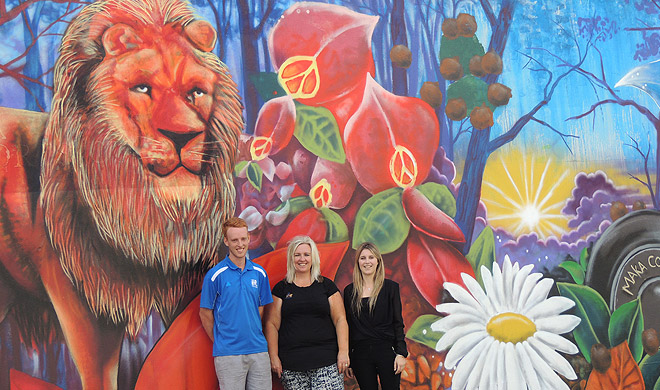Lighthouse Club – Fitzroy Victoria
Fitzroy Victoria Bowling Club has long been regarded as a leader in the barefoot bowls world. Now it is almost the complete club.
Unlike many bowls clubs in Australia which “go big”, Fitzroy Victoria has centred and built its success on its bowls operations. It is not a pokies venue, nor does bowls sit somewhere mid to low-range on a multi-sports pecking order.
Yet Fitzroy Victoria has a turnover of $1.6 million a year, and importantly, profitability. A club which lives within its means.
Between 25,000 and 30,000 barefoot, corporate and social bowlers will go through the club this season. But there’s a club culture tuned into its existing membership and the traditional Victorian stronghold of Pennant.
Many clubs and even large corporations battle to achieve even a handful of goals on their strategic plans. Fitzroy Victoria has its entire current strategic plan ticked off ahead of time.
There’s much to be learned from the Fitzroy Victoria model for other clubs.
Operations manager Holly Simmons, the club’s high-profile State player and junior development coach Dylan Fisher and events manager Kelly Brenton sat down with Bowls Victoria to talk through how Fitzroy Victoria works, its successes, and what’s next.
Fitzroy Victoria is well known as a barefoot bowls stronghold. The period before Christmas is traditionally strong for this, as the Christmas parties and corporates enjoy a roll. How have you gone this year?
Holly: We won’t really crunch the numbers until the New Year. Last year we were close to 25,000 barefoot and corporate bowlers for the year. This year we’ll probably exceed that – close to 30,000 which we’re exceptionally proud of.
Kelly: There’s a lot of people come from the CBD, because they just jump on the tram which runs past the front entrance and jump off. We even have people who come from Sydney, we have lots of family reunions, birthdays. It’s not just corporates.
Many clubs will trot out the argument that you can’t have barefoot and corporate bowls, and still serve your members properly. Fitzroy Victoria doesn’t believe that, and proudly says business and membership can co-exist. How does the club mix business with membership successfully?
Holly: It’s really important having on-green success as well as off-green success. Having my husband Todd (Simmons) in charge of the on-green success and me in charge of the off-green success, it really marries well in the fact we both have a similar vision. It’s about having good culture in the on-green success, having good people around us, and making sure the on-green and off-green success marries well so you can achieve both.
Dylan: The first four rinks on the top green are always for members. We never book them out. We’re always trying to look after our members.
Holly: Last Saturday night we had a Christmas function (for members) and the food and drink was complimentary from the club as payback. People appreciate that. Saturday afternoons we give a meal to both our team and our opposition team. We’ve become a bit famous for our meal after the game. We like to give back to our members as much as we can and also, the Fitzroy community love our facility.
We’ve got three fulltime staff and 25 staff in total. We’ve had the busiest barefoot season we’ve ever had, and there hasn’t been a cross word spoken. We’ve got a great team here and great staff.
We want people to enjoy the game of bowls, we want people to enjoy our facility, and for us to make a little bit of financial gain out if it. That’s where we’re at.
You’ve also managed to complete the objectives of your strategic plan ahead of time. What are some of the key changes that have been made in the past two years at the club?
Holly: We’ve made some major changes to how the playing group’s seen. Todd has put a ban on drinking on pennant days altogether – no one can drink during pennant. That’s helped club culture. That’s helped attract families to the club as well.
From a business point of view, I think we’ve become more professional – better policies and procedures in place, it was really important for me to look at expenditure versus income. It’s easy when you’re turning over $1.6 million a year to have ballooning expenses as well, so streamlining those sorts of areas. Making sure the club’s got financial security moving forward is also important.
From the strategic plan objectives, since August 2014, we’ve introduced an online booking system for barefoot and corporate bowls days, brand new bowls for use by visitors, become active on social media, brought in a new website, we’ve had a mural put on the clubhouse walls (just completed this month), and a complete HR overhaul – it’s actually scary to think about how much has been achieved.
Clearly there’s a family connection in terms of how the club is run, with your son Dylan and husband Todd involved. Children can be a divisive issue at many clubs, but not at Fitzroy Victoria. You appear to have a real desire to embrace juniors, junior development, and push bowls as a family sport.
Holly: When I worked for Bowls Vic in the under 18 space, I got a real passion for seeing young people becoming the best they could. I’ve got four children. Dylan started playing bowls when he was 10, and I had a real, vested interest in Dylan’s career in that I wanted to make sure he had the balance of being a fantastic bowler, but also having a life outside of bowls. That’s carried over into mine and Todd’s interest in having young ones here. We think the young ones add a sense of enthusiasm around the club as well, and that adds to the culture we’re trying to create.
Dylan: We always get asked the question are kids allowed to come? We say, of course, the more merrier. We’ve always got kids running around.
Kelly: With our corporates and parties when people book, they always tell us a lot of other clubs won’t let them have kids.
Dylan: Some of those clubs have got pokies and it’s a different feel. For us, there’s no real barriers to who can and can’t come. We’re easily accessible to the Fitzroy community. We open our arms pretty wide to them, and we’ve got a good relationship with primary and high schools. We don’t charge them. We give them the opportunity that if they want to come back, have a bowl and get some more coaching, then that’s free too. We want to have them come in, and make them feel welcome. The kids then realise after the sessions bowls is OK. People who try bowls have a much different perception of it after they’ve done it. Everyone likes it after they’ve had a go.
Clearly there have been many achievements at Fitzroy Victoria. What’s the proudest?
Holly: Assimilating our club culture and our business culture as one. Making sure that everyone is looked after, and understanding that a club can have it all if you put your mind to it.
What would your message be to clubs who are going through a tough time, or are perhaps summoning up the courage to make a change? What can they learn from Fitzroy Victoria?
Holly: You can have a good thriving barefoot business, as well as a good membership culture. You can have it all.
It’s important that clubs see past what they think is the norm. Having looked at declining clubs and clubs closing down, it really is a reluctance to change and accepting change and accepting the unknown of what could be. My husband calls me the eternal optimist, because I believe anything’s possible if you put your mind to it.
What we’re doing here is fantastic and we’re really excited about it. But we’ve got some more work to do. We want to be better. We never want to stand still.




